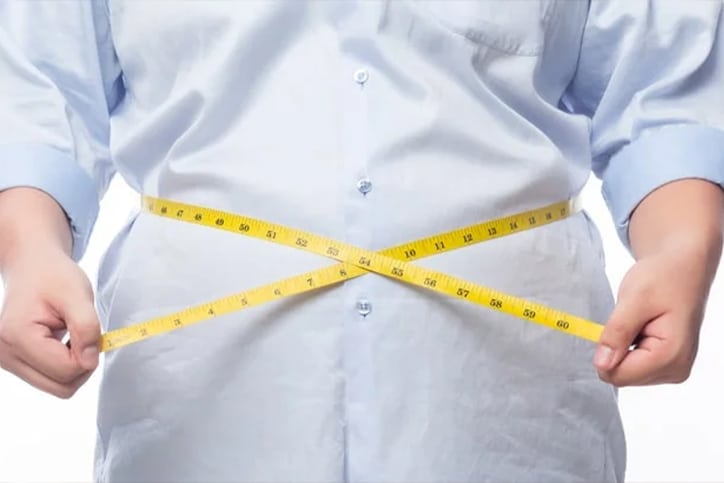

When getting surgery, you want to know your care is being handled by experienced professionals. That’s why BMI uses a model of patient care in which a board-certified anesthesiologist supervises a Certified Registered Nurse Anesthetist (CRNA). This practice is common in the United States, with 65% of CRNAs practicing in collaboration with anesthesiologists. Below, we highlight our approach to surgical procedures, our team members, and the important role they play in your care.
Our Approach to Patient Care
Regardless of which condition you are seeking treatment for, we start with an initial consultation to determine your needs and how we can best meet them. Then, we determine which procedure is best for you and provide any necessary preparation and follow-up associated with it. This allows our patients consistency in the care they receive before, during, and after their procedures.
No matter which procedure you require, we use minimally invasive, laparoscopic approaches that allow for effective results, faster healing, and shorter recovery times than traditional surgical procedures. Most of our patients return to their regular routines within a week of their procedures. However, specific timelines may vary depending on the procedure and condition.
Most importantly, in order to improve patient safety and outcomes, we require an anesthesiologist to be present for each of our surgeries. This sets BMI apart from other outpatient surgery centers in our region, as most do not have a board-certified anesthesiologist providing anesthesia during procedures. Instead, they are staffed by CRNAs only, with the surgeon supervising the CRNA.
Meet The Surgical Team
At BMI, we only work with the best surgical professionals, including surgeons, anesthesiologists, physician assistants, medical assistants, and CRNAs. Below, we highlight our team members, their accomplishments, and their unique contributions to our team and patient care.
Our Board-Certified Surgeon
Dr. Jay C. Long, MD, is our board-certified general surgeon. He has won awards for his accomplishments in laparoscopic surgery. His training included a fellowship in minimally invasive and bariatric surgery at The Methodist Hospital in Houston, TX, after completing his general surgery residency at Baptist Medical Center in Birmingham, AL. He attended the University of Alabama’s School of Medicine.
Dr. Long started performing bariatric surgery during his surgical residency in 2002. In July 2006, after completing his fellowship, he opened his own practice at St. Vincent’s East. Dr. Long is a member of the American College of Surgery Center of Excellence for Bariatric Surgery.
Our Certified Physician Assistants
At BMI, we employ two certified physician assistants (PA-Cs), Rebecca Rosensmith and Rachel Goodwin. They are formally trained to perform many routine tasks a physician can do, like prescribing medications, taking medical histories, performing physical exams, and ordering testing. Our PAs work under the supervision of Dr. Long, consulting patients and providing post-procedure follow-up.
Board-Certified Anesthesiologists
To provide our patients with the most comfortable experience possible during their procedure, BMI has a board-certified anesthesiologist overseeing all of our surgeries. An anesthesiologist is a medical doctor who holds additional training in anesthesia. They, along with our CRNAs, provide anesthetics and pain management before, during, and after surgery. This collaboration leads to better quality care and patient outcomes than either practitioner working individually on a particular procedure.
Certified Registered Nurse Anesthetists (CRNAs)
Certified Registered Nurse Anesthetists, or CRNAs, are advanced practice nurses who administer anesthesia and provide related services in a surgical setting. They also monitor patient’s vital signs and care for them immediately after surgery. To ensure patient comfort and safety during surgery, CRNAs at the Ambulatory Surgery Center work under the supervision of a board-certified anesthesiologist. This also helps CRNAs gain skills and experience to better serve patients in future procedures.
Support Staff
The work BMI’s surgical team does is well-supported by our friendly and compassionate support staff members. They handle many basic clinical and administrative tasks that contribute to both patient care and managing our practice. Our support staff consists of our medical assistant, Hannah Siddle, and office manager, Haley Johnston. They are often the first members of our team that patients interact with, making their roles especially important to building rapport with them.
External Partners
While not employed by BMI, we work with other medical professionals through our partnership with St. Vincent’s Hospital in Birmingham, AL, to provide more comprehensive patient care. Along with training and resources for our staff, this partnership allows patients to get the support they need during emergency situations or for other needs they may have while under our care.
Experience the Difference a Compassionate Team Makes
Whether you want to lose weight through bariatric surgery or treat a health concern like acid reflux, the compassionate, experienced team at BMI is here for you. Our approach to patient care allows for the best possible outcomes, regardless of which procedure you need. To schedule a consultation, contact us at (205) 858-1211. Our team can help you create a custom treatment plan to address your needs and goals.
Schedule a Consultation With BMI’s Surgical Team
Specializing in the management of various conditions, such as obesity and acid reflux, the BMI team can create a treatment plan customized to your needs and goals. Experience the difference a professional yet compassionate surgical team can make in your care today. For more information or to schedule a consultation, contact BMI at (205) 858-1211. We look forward to being your partner in care.












